Blog Archives
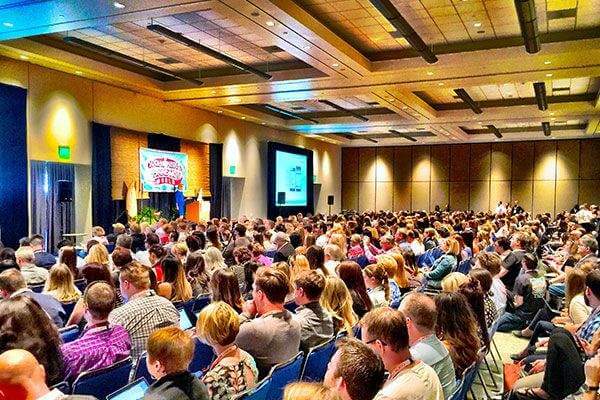
I wanted to give a quick update on a regional event that Filtrexx will be attending. On Tuesday, March 12 I will return to my old Buckeye stomping grounds in Columbus (O-H-I-O!), to attend the Ohio Stormwater Management & Drainage Conference. We have seen an increased interest from Ohio engineers lately on various projects. From pipelines and well pads, to green solutions for shorelines. Our goal is to be present at this event to make sure designers know about the great solutions that Filtrexx can offer. Of course, I’m also very excited to hear updates from the Ohio Department of Natural Resources on the new state permit. I want to explore how we can get more compost filter sock specified in the state of Ohio, the state where compost sock was invented! I will have a booth at the show and will be happy to answer questions, or provide solutions for your upcoming projects. Make sure to stop by and say hello!
Nick has a Bachelor of Science from The Ohio State University. He has been with Filtrexx for over 13 years and is now managing sales for the Northeast region. He has over 5 years of experience in SWPPP writing/review, stormwater inspections, and BMP installation. In his free time, he enjoys hiking and kayaking with his girlfriend and playing with his Boxer puppy Rudi!
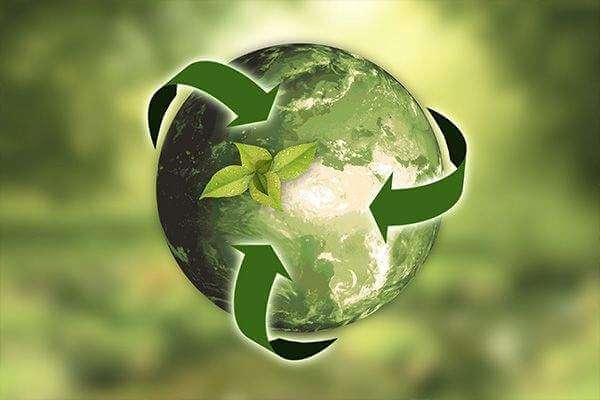
Filtrexx International is committed to creating high performance environmentally sustainable products, not just for their intended application - environmental compliance, but to move beyond impact minimization, to creating products and services that are truly regenerative to the environment. Filtrexx views organic matter, the base material for all of its products, as form of natural capital, and the filtration it provides an essential ecosystem service – just as we find in natural ecosystems across the planet.
Filtrexx procures this essential base material by closing the loop for recycled organic materials diverted from landfills across North America, and upcycling it into all of our water quality protection products. By upcycling composted organic materials within the same bioregion in which they were generated we are able to reduce carbon emissions from landfills and transportation, and sequester carbon from the atmosphere by returning carbon to the soil and growing healthy, sustainable plants.In a single application, Filtrexx is uniquely able to reduce waste, protect water, and reduce carbon emissions.This is one more example of how Filtrexx is moving beyond industry recognized “best management practices” and toward high performance sustainable management practices. With that we are proud to announce in 2018 Filtrexx International:
- Recycled/diverted from landfills 796,753 tons of organic waste;
- Prevented 154,174 tons of sediment from entering rivers, lakes, and streams;
- Prevented/sequestered 1,660,355 tons of CO2 from entering the atmosphere – equivalent to removing 353,267 cars from roads and highways.
Dr. Britt Faucette, Ph.D., is an Ecosystem Scientist, CPESC, and LEED AP. He earned his Ph.D. from the Odom School of Ecology at the University of Georgia where he researched soil-water-plant performances of various BMPs used in soil erosion and stormwater management applications; served as a state specialist in storm water management, organics recycling, and pollution prevention programs; and served as an adjunct professor. Britt coordinates research, design, and training services for the stormwater and organic materials management industries and serves on technical committees and boards with ASTM, GRHC, CCREF, and IECA. In 2008 he was awarded the annual USCC Clean Water Award. Britt has authored numerous peer-reviewed and popular press publications and popular press articles, two books, federal and state specifications, and has been awarded nearly $500,000 in research grants.
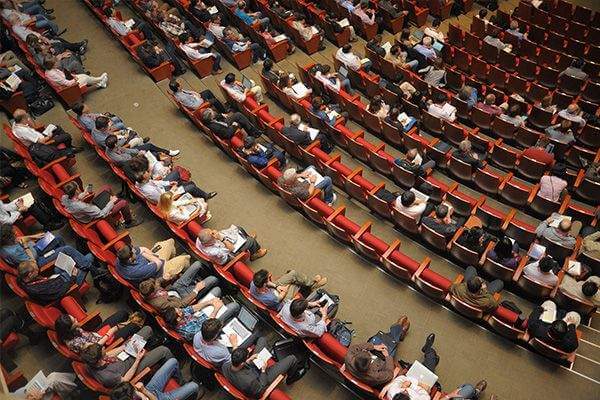
The International Erosion Control Association Conference was held in Denver, Colorado this year at the Colorado Convention Center. Professionals in the erosion control, stormwater management and sediment control industries gathered together for three days of networking, meetings and educational sessions. Filtrexx attended once again and Dr. Britt Faucette presented Calculating Ecosystem Service (Environmental) Impact of Compost-Based Sustainable Management Practices (SMPs).
Dr. Faucette’s presentation focused on Natural Capital – the material within the environment that provides free ecosystem services that maintain our economic, environmental and human health. Ecosystem services include soil erosion control, stormwater prevention, maintenance of natural cycles, climate regulation and waste reduction. Ecosystem services have a global economic value of $33 trillion per year. We save on energy, hard infrastructure and financial expenditure the more we monitor and manage the earth and its natural design.
Low impact development and green infrastructure strategies use natural design principles to decentralize stormwater management and restore the natural hydrology. Compost best management practices (BMPs) utilize these sustainable design strategies and maximize what nature does to reduce stormwater, filter pollutants and conserve water while also implementing bio-based materials, reducing carbon footprints and accruing LEED green building credits.
IECA 2019 was a great show and Filtrexx is excited to be once again participating in IECA 2020 in Raleigh, North Carolina!
As the Marketing Manager for Filtrexx, Teele works heavily in the digital and social arenas of marketing, running the Filtrexx Twitter, Facebook and LinkedIn pages. She also serves as writer and editor of press releases, project profiles and most recently, the Filtrexx blog. Teele attended the University of Wisconsin-Whitewater where she obtained a Bachelor of Arts in public relations and a Master of Science in corporate communication. Teele has worked in marketing roles for various companies around the Twin Cities before landing at Filtrexx in July, 2017.
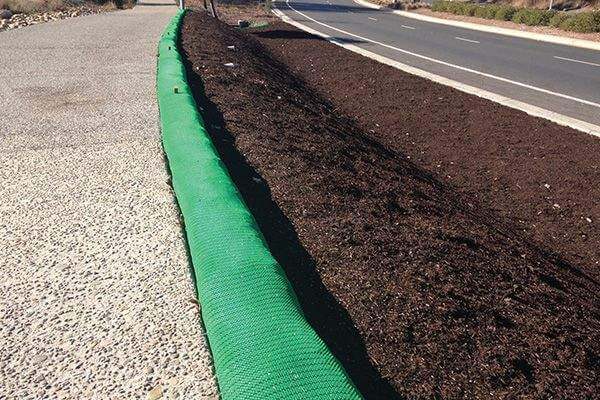
Filtrexx is kicking off this week by attending the International Erosion Control Association Conference in Denver, Colorado. With erosion and sediment control being the theme for the week, below are four reasons why compost filter socks are the best BMP for your construction project.
The top four reasons why any sediment control Best Management Practice (BMP) fails on a construction site are issues with installation, maintenance, performance, and design. Compost filter socks are specifically designed to remove each of these issues, minimizing risk on any construction site or land disturbing activity.
- Compost filter socks are one of the only BMPs on the market that do not require trenching, which is both labor intensive and a land-disturbing activity. Simply prepare the ground, lay down the compost filter sock, and stake. It is the industry leader in installation simplicity.
- Compost filter socks combine one of the highest stormwater flow-through rates and heaviest weight of any BMP in the industry, creating a product that rarely moves, floats, overtops, or undercuts – creating minimal maintenance requirements.
- Compost filter socks are one of the only sediment control BMPs whose performance has been researched by multiple major U.S. universities and a U.S. federal agency, with results published in leading U.S. environmental scientific peer-reviewed publications.
- Compost filter socks are one of the only sediment control BMPs that have detailed site specific design and engineering criteria available for virtually any site and regional design storm/rainfall condition. Without this information a BMP is impossible to design correctly, leading to a much higher risk of major failure from under design or paying too much due to over design.
In addition, compost filter socks are one of the only BMPs that are accepted by state regulatory agencies across the U.S., and can significantly reduce environmental impacts both on and off the project site.
This blog was featured by both the U.S. Composting Council and the International Erosion Control Association.
Dr. Britt Faucette, Ph.D., is an Ecosystem Scientist, CPESC, and LEED AP. He earned his Ph.D. from the Odom School of Ecology at the University of Georgia where he researched soil-water-plant performances of various BMPs used in soil erosion and stormwater management applications; served as a state specialist in storm water management, organics recycling, and pollution prevention programs; and served as an adjunct professor. Britt coordinates research, design, and training services for the stormwater and organic materials management industries and serves on technical committees and boards with ASTM, GRHC, CCREF, and IECA. In 2008 he was awarded the annual USCC Clean Water Award. Britt has authored numerous peer-reviewed and popular press publications and popular press articles, two books, federal and state specifications, and has been awarded nearly $500,000 in research grants.
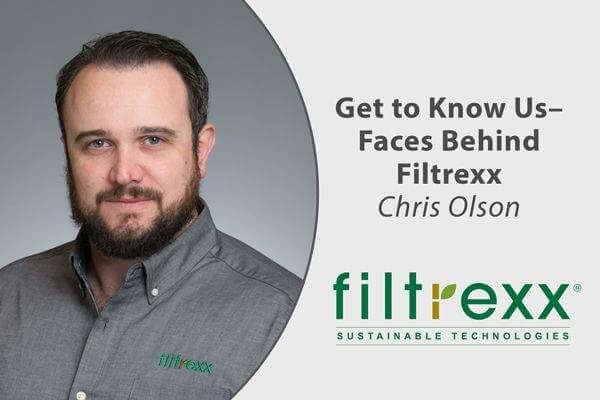
Get to know: Chris Olson, Senior Manager of Operations
What is your role at Filtrexx?
At its core, my role is to guarantee that sales efforts are supported by way of manufacturing and installations and to ensure that the manufacturing sites and installation crews have the resources and training to succeed. I also work with the product development team to forecast production capability requirements prior to the actual release of new product.
What do you like most about working for Filtrexx?
At Filtrexx, bold decision making and flawless execution are cornerstones of what we do daily. We have the latitude to take initiative, take risks, and solve problems with just the right balance of careful analysis and audacity.
What do you find the most challenging about working for Filtrexx?
We are a rapidly growing company and keeping production capability up to speed with the sale of product. The true challenge is finding the balance between muscling through a task to make sure it is complete and finding a better way to do it.
What has been one of your favorite projects to work on while at Filtrexx?
Easy; the ongoing California fire remediation project is very fulfilling. In finding the best way to bring massive quantities of SiltSoxx to Northern California, we determined that opening a satellite location in short order to satisfy the need of sourcing local compost back into the community is best. We are partnering with charities and non-profit organizations to employ 10 local residents whose homes and jobs were lost in the Camp Fire tragedy. Watching the new team band together and exceed any rational expectation is nothing short of awe inspiring.
What have you learned that you didn’t know before becoming a Filtrexx employee?
As a relatively new employee, I learn every day. From starting at a base knowledge of 0 in compost to general business practices, every day comes with new lessons.
What are some of your hobbies outside of work?
In this order: Spending time with my wife and two kids, fishing, and teaching my kids to fish. We have a family cabin on Lake Vermilion, MN where we spend nearly every summer weekend. In the winter, we ice fish, snowboard, and generally just survive the cold.
Any random facts we should know about you?
Prior to joining Filtrexx, I spent 10 years as an Infantry Officer in the Army where I had a chance to lead upwards of 135 of the Nation’s finest in far-away lands. I also spent the last 2 years of my career living in Cairo, Egypt working at our Embassy as part of the U.S. diplomatic mission coordinating the manufacture of 100’s of tanks and other arms to the government of Egypt. The best part of that assignment was being able to play #8 on a touring Rugby team composed of people from over 6 countries.
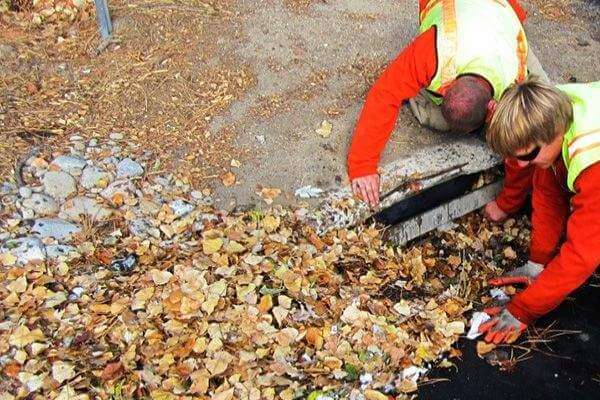
Evangelina Paoluccio P.E., QSD/P is the Engineering Manager at Inventive Resources, Inc.She has over fourteen years of design experience in drinking water, wastewater and storm water systems and is a registered Civil Engineer in California.
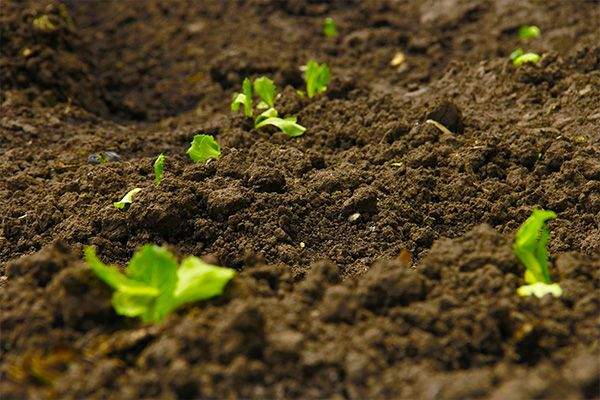
This year’s Annual Compost and Composting Mega-Conference and Trade Show hosted by the US Composting Council brings the theme Renew and Regenerate to the desert in Phoenix, Arizona.This week long event is designed to show case new developments in organics recycling, compost manufacturing, and compost utilization for the betterment of society and the environment.Whether you are interested in the latest technology and equipment used at large scale composting operations, educational and technical sessions on new markets and applications for compost use, compostable plastics, new environmental research on compost use and water quality, or new policies and infrastructure programs helping to increase organics recycling and use, there is a little something for everyone.
As one of the largest compost users in North America this event (and host organization) is critical to Filtrexx’s past success and our future growth.This is where we interact with many of our suppliers, often find new ones, and share with the industry new developments Filtrexx is researching or commercializing in compost used for erosion and sediment control and stormwater management. We have strong roots with this industry, as our success is a shared one, so we look forward to this annual event unlike any other.Just as our technology is used to regenerate disturbed soils and landscapes from coast to coast, we hope to meet you in Phoenix to both share and learn how recycled organics can really push the Renew and Regenerate envelope in 2019.
Dr. Britt Faucette, Ph.D., is an Ecosystem Scientist, CPESC, and LEED AP. He earned his Ph.D. from the Odom School of Ecology at the University of Georgia where he researched soil-water-plant performances of various BMPs used in soil erosion and stormwater management applications; served as a state specialist in storm water management, organics recycling, and pollution prevention programs; and served as an adjunct professor. Britt coordinates research, design, and training services for the stormwater and organic materials management industries and serves on technical committees and boards with ASTM, GRHC, CCREF, and IECA. In 2008 he was awarded the annual USCC Clean Water Award. Britt has authored numerous peer-reviewed and popular press publications and popular press articles, two books, federal and state specifications, and has been awarded nearly $500,000 in research grants.
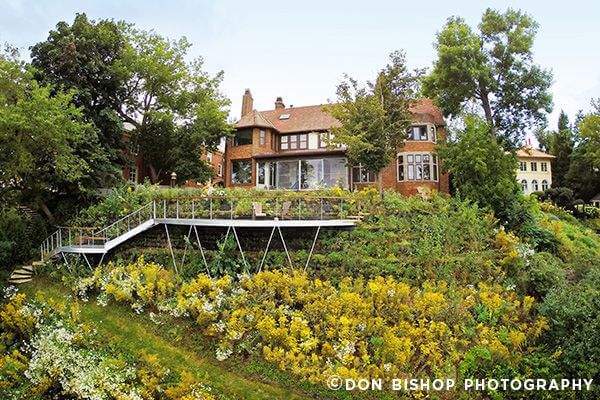
Problem: A family living on a beautiful lakefront property outside of Milwaukee had major concerns about the slope stability outside their home as well as having access to the beach at the water’s edge. From the view from the back porch windows, the home was right at the edge of the slope. The slope needed stabilization and Marek Landscaping, LLC was hired to design and implement the project.
Solution: A wall of GreenLoxx with GroSoxx were selected for the upper portion of the bluff. The wall would stabilize the area directly adjacent to the home, adding eight feet of yard to the upper terrace. To provide access to the beach, the team determined that a cantilevered deck would provide a dramatic and functional connection between a stone stairway and the trail leading to the beach. The living wall would be the foundation from which the deck and stairs would be anchored. It would provide the access to the beach and beautiful views of the coast. Marek’s landscape architect and in-house ecologist developed a plant and seed mix created specifically for the cultural needs and stabilization properties of the plants on the site. Careful on-site direction was provided to ensure efficient and exact implementation of the soil stabilization, planting, trail and overlook construction.
Success: The 90-foot long by 15-foot high GreenLoxx wall consisted of lightweight geo-foam block backfill material, soil anchors and 3” galvanized pipe tied to layers of geogrid wrapped around every two layers of the GroSoxx at the face of the wall. Weight and size of assemblies were critical in design criteria as there was only five feet of space between the neighboring houses. The stairs and landing that connect the overlook deck and bluff trail were custom fabricated using aluminum, wood and stainless steel assemblies that curve and flow with the shape of the GreenLoxx wall.
As the Marketing Manager for Filtrexx, Teele works heavily in the digital and social arenas of marketing, running the Filtrexx Twitter, Facebook and LinkedIn pages. She also serves as writer and editor of press releases, project profiles and most recently, the Filtrexx blog. Teele attended the University of Wisconsin-Whitewater where she obtained a Bachelor of Arts in public relations and a Master of Science in corporate communication. Teele has worked in marketing roles for various companies around the Twin Cities before landing at Filtrexx in July, 2017.
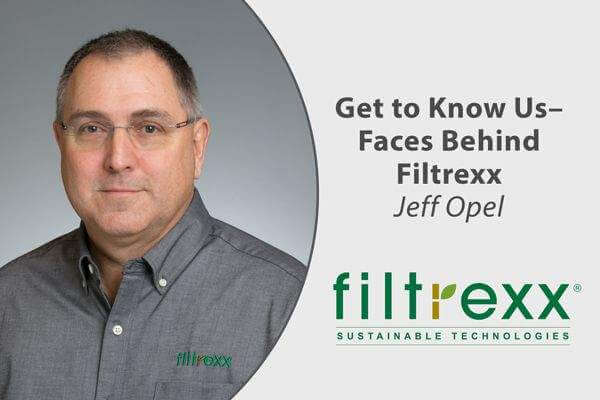
Get to know: Jeff Opel, Southeast Sales Manager
What is your role at Filtrexx?
My main responsibility is to support, and train our sales force that serve the Southeast and Central United States. In addition to that role, I focus on the development of our products, supporting the stream restoration and coastal restoration industries.
What do you like most about working for Filtrexx?
Since I found Filtrexx 17 years ago when I was a regulator in Maryland, I was, and still am impressed about the energy, creativity, and support we provide the industry. I firmly believe we are focused on solutions over “just selling a product”. That ethic separates us from the rest as we are partners with those who design and install all of our products.
What do you find is the most challenging about working for Filtrexx?
That’s simple: Getting the point across that what humans have been doing for the last 30+ years in sediment control has not worked and that products like Filtrexx represent the next 30 years.
What has been one of your most favorite projects?
That’s a hard one. This may sound corny, but it’s not a project in the pure sense, but working with team members that are new to Filtrexx and selling and watching them grow as a person and a professional. Having been in the environmental business for over 40 years it’s important for me to transfer all that I have learned to the next generation of professionals.
What have you learned that you did not know before becoming a Filtrexx employee?
How not to sell a product, but to help guide customers to see the value of Filtrexx.
What are your hobbies outside of Filtrexx?
Fishing, although I’m not catching much. I do spend a fortune on bait with little success. Learning to carve duck decoys, spending time at the beach, and spending time with friends.
Any random facts we should know about you?
At one time, I was one of the largest Shiitake mushroom producers in Maryland.
Jeff Opel has 30 years of experience in the natural resources industry. Many of those years were served as District Manager of several Soil Conservation Districts in Maryland.As District Manager Jeff was responsible for advancing new and innovative sediment and erosion control technology used during the construction process. Jeff also administered the State of Maryland’s Living Shoreline program in several Counties in the state and participated in the development of several stream restoration projects. New advanced technologies used included the use of Flocculating agents to increase the efficiency of existing sediment control techniques. Jeff also created designs for multi chamber sediment basins incorporating bio filters to increase trapping efficiency. It was at this position that Jeff became familiar with Filtrexx which was used with great success. Since leaving the government service after 20 years Jeff ran a field office for a civil engineering firm in Delaware, as well as several landscape companies, before coming to Filtrexx. With Filtrexx Jeff has worked in business development for the mid-Atlantic, and in Technical Sales support for the Southeast region. Presently Jeff represents Filtrexx as the Southeast Regional Sales Manager and is actively developing Filtrexx initiatives related to stream restoration and living shorelines.
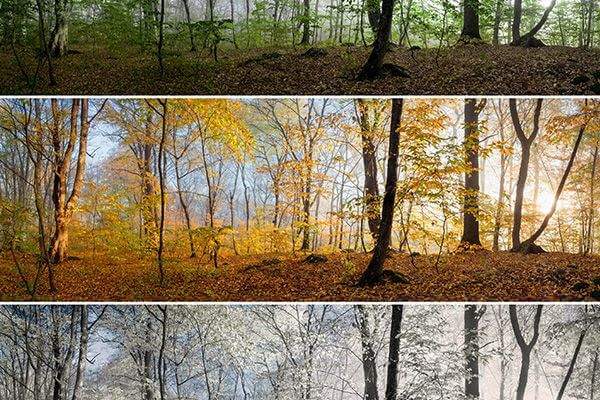
As the year comes to an end, we’d like to take a look back at an eventful 2018 with our favorite moments from each month:
January: We kicked off the year and tradeshow season at COMPOST2018, the annual conference for the US Composting Council.
February: Dr. Britt Faucette & John Paoluccio spoke at the IECA Annual Conference on the topic of Compost-Based Biofiltration Practices in Urban Runoff and MS4 Stormwater Permit Compliance Applications.Dr. Craig Kolodge also spoke, on the topic of Three Keys to Successful Living Shorelines - Containment, Reinforcement and Organic Media.
March: With the help of EcoPractices, we calculated our 2017 Environmental Impact and announced the statistics on how our Sustainable Management Practices positively impacted the environment.
April: The Spring issue of WEF Worldwater Stormwater Management magazine featured an article by John Paoluccio titled Catch Basin Inserts: Last line of defense in stormwater treatment (page 31), explaining the operation, benefits, and applications of these devices.
May: Filtrexx sponsored the annual Composting Council Research & Education Foundation (CCREF) Young Investigator Scholarship for young professionals in the field of compost research.
June: A unique GreenLoxx wall was installed in Lakewood, OH. The grown out after photo from a few months later shows how well this natural, vegetated feature works with traditional hardscapes.
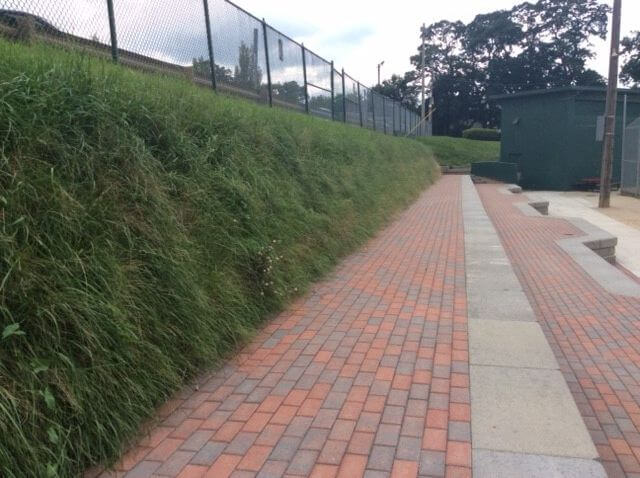
July: The Filtrexx Blog officially launched – we’ve enjoyed sharing industry news and knowledge from our partners and experts each week!
August: Dr. Britt Faucette spoke at StormCon, The Surface Water Quality Conference on the topic of Ecosystem Service Benefits of Compost-Based Sustainable Management Practices.
September: Filtrexx joined the 7th annual Storm Water Awareness Week by participating in five workshops across the state of California.
October: We took a look at what it really means for sediment control products to meet state and federal requirements on the blog.
November: Filtrexx welcomed our new General Manager, Chris Freitag, and wished a great retirement to Rob Carrothers.
December: Dr. Craig Kolodge spoke at the National Summit on Coastal and Estuarine Restoration and Management on the topic of Using Organics for Coastal Resiliency: Upland to Coastline.
That’s a wrap on 2018 – from all of us at Filtrexx we look forward to working with existing and new customers and partners in 2019, and wish you all a Happy New Year!
As the Associate Marketing Manager for Filtrexx, Kristin specializes in print & digital marketing, graphic design, and website management. She also serves as the moderator for the monthly Filtrexx Webinar Series. Kristin attended the University of Toledo where she obtained a Bachelor of Arts in both communication and environmental studies. After completing multiple internships with Filtrexx, she officially joined the Filtrexx team in 2010. In her free time, she enjoys exploring local parks with her husband, spoiling their two golden retrievers, and cheering on the Cleveland Indians.
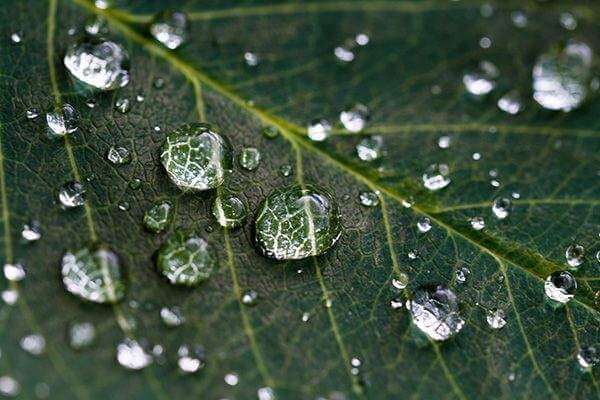
What would nature do? This is the driving force in how we approach problem solving, product innovation, and site design solutions. If you look close enough nature often provides a perfect blueprint for efficiency, performance, and sustainability, and you can find this guiding principle in each of our major product lines from SiltSoxx and EnviroSoxx - relying on natural materials and principles of water biofiltration, to our Living Shoreline and Bank Stabilization technologies - relying on natural materials and native plants to restore natural water cycles and protect biological diversity – all while restoring natural carbon cycles as a fundamental design feature. It is no coincidence that organic matter is the foundational material for all Filtrexx products, just as it is for all soil ecosystems worldwide. This essential material maintains local and global water and carbon cycles, filters pollutants, minimizes stormwater and soil erosion, and is the foundation material for plants and the soil food web.
Preservation of organic matter (often referred to as natural capital) at the landscape and watershed scale is where each of us can have the greatest impact. However, preservation is not always feasible due to economic, land area, and land development constraints. Designing or reestablishing organic matter, back into the landscape, can be just as important. Selecting native plant materials and native sources of organic matter will help to ensure maximum performance and health of above and below ground ecosystems; and when designed appropriately will help restore and sustain ecosystem services. This type of design also builds stability and resilience within the system to protect against future, unforeseen disturbances and disasters, both human and environmental.
The basis for this type of innovation and design is rooted in Biomimicry. Biomimicry is the imitation of the models, systems, and elements of nature for the purpose of solving complex human problems – it is innovation inspired by nature, according to Janine Benyus, founder of the Biomimicry Institute. Adoption of this approach to problem solving at Filtrexx has moved beyond product development, innovation, and design, and has now become ingrained in our culture.We have developed principles of Biomimicry to move beyond the idea of solely creating best management practices (BMPs) for our industry, to challenging and leading our industry with truly sustainable management practices (SMPs) – the next level of BMP.
By adopting and utilizing sustainable management practices we surpass simply reducing environmental footprint, and into restoring ecosystems, rebuilding natural capital, and enhancing ecosystem services, locally and globally.We define a sustainable management practice as: made from natural, biologically-based/organic materials; recycled and easily recycled for future use; locally manufactured from locally available materials; carbon neutral; made with minimal embodied energy, and has a low life cycle cost.Creating truly sustainable management practices is our commitment to our customers, our industry, and the sites and watersheds in which we deploy our products and services. “The biggest innovations of the 21st century will be at the intersection of biology and technology. A new era is beginning.” – Steve Jobs
Dr. Britt Faucette, Ph.D., is an Ecosystem Scientist, CPESC, and LEED AP. He earned his Ph.D. from the Odom School of Ecology at the University of Georgia where he researched soil-water-plant performances of various BMPs used in soil erosion and stormwater management applications; served as a state specialist in storm water management, organics recycling, and pollution prevention programs; and served as an adjunct professor. Britt coordinates research, design, and training services for the stormwater and organic materials management industries and serves on technical committees and boards with ASTM, GRHC, CCREF, and IECA. In 2008 he was awarded the annual USCC Clean Water Award. Britt has authored numerous peer-reviewed and popular press publications and popular press articles, two books, federal and state specifications, and has been awarded nearly $500,000 in research grants.
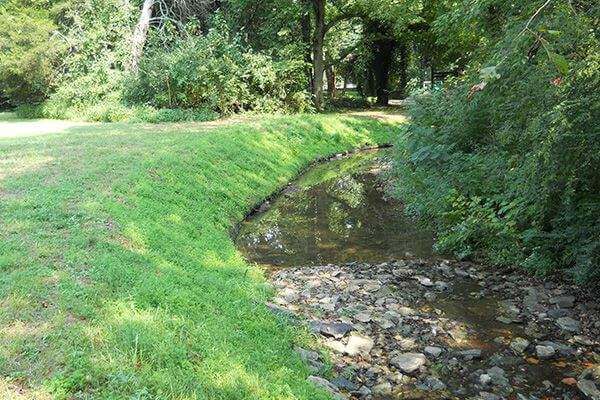
Problem: In May of 2010, a suburb of Nashville experienced torrential downpours. Two straight days of rainfall in what equated to 420 billion gallons of water fell on the city of Brentwood, Tennessee. The city received an unprecedented 14-17 inches of rain causing extensive damage to homes, mud slides, damage to roads and bridges and even generated several fires. Several homes along a tributary had lost several feet of land in their backyards. Erosion of these parcels continued unabated causing major financial loss for the homeowners.
Solution: Brentwood’s Public Works Department along with the Tennessee Department of Environment and Conservation (TDEC) reached out to Mid-TN Erosion Control, a company they had worked with in the past, for a solution. Mid-TN referred them to Filtrexx GroSoxx to help stabilize the bank. The tributary was a Designated Blue Line Stream, meaning there were strict rules about what could be used to stabilize the bank. They were looking for a green option.
Success: TDEC approved the proposal to use GroSoxx to mitigate the loss of land. The GroSoxx were pre-seeded with native species to ensure there would be successful grow out. Mid-TN Erosion stabilized a 530-foot section of bank, at an average height of four feet. GroSoxx were installed in successive courses along with geogrid to provide structural protection, control erosion and establish and reinforce vegetation all in one system. The application has been specifically developed to withstand high flow velocities and stresses that conventional products could not. Eight weeks later, the GroSoxx had proven effective and the homeowners were ecstatic with the results.
Interested in working together on a bank stabilization or Living Shorelines project? Visit filtrexx.com for more information.
As the Marketing Manager for Filtrexx, Teele works heavily in the digital and social arenas of marketing, running the Filtrexx Twitter, Facebook and LinkedIn pages. She also serves as writer and editor of press releases, project profiles and most recently, the Filtrexx blog. Teele attended the University of Wisconsin-Whitewater where she obtained a Bachelor of Arts in public relations and a Master of Science in corporate communication. Teele has worked in marketing roles for various companies around the Twin Cities before landing at Filtrexx in July, 2017.
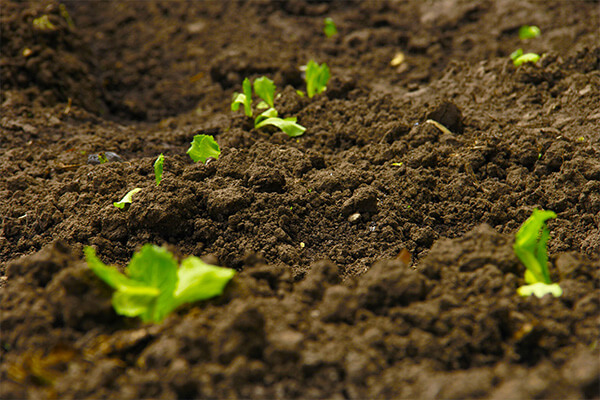
The Composting and Organics Association of Missouri (COAM) recently received grant funding from the St. Louis Jefferson Solid Waste Management District and the Missouri Department of Natural Resources to hold an upcoming free workshop: Soil Specifications and Management with a Changing Climate. COAM is a non-profit corporation of public and private organizations and individuals dedicated to increasing the quality, value and usage of recycled organics in Missouri by providing education, information and resources and promoting activities and legislation that build healthy soils, benefit people and minimize negative environmental impacts.
I am a horticulturist with over 30 years of experience working with compost in a variety of applications; all over the United States (and the world). I have also been involved in developing the national compost testing program (the US Composting Council’s Seal of Testing Assurance Program), and many state and national compost use specifications. I am looking forward to attending and speaking at the COAM workshop. I will discuss in detail how to best specify topsoil and compost and how to specify their usage in future projects. Key parameters to include in topsoil and compost specifications will be reviewed as well as practical applications of both. Additionally, this workshop will also review regional and other specifications for the use of compost in bioretention soils and rooftop garden media. Finally, the workshop will illustrate how recycled organic products - compost and mulch - can be used to create and manage soils and improve plant growth.
The workshop will be held November 15 at the Missouri Botanical Garden in St. Louis, Missouri and registration is limited. Register today and I hope to see you all there!
Ron Alexander has over 30 years experience in composting and organics recycling. He was instrumental in drafting AASHTO specs for compost blankets, berms and socks and working with state DOT’s on the adoption of AASHTO specs across the US. Ron has also helped to secure funding and coordinate university research and project implementation for compost blanket, sock performance and flood control applications with WRAP in the UK. Ron is the nation’s most experienced compost marketing consultant, completed over 400 related consulting projects, worked with over 200 composting and organics recycling facilities throughout North America and the World and has written over 300 papers and presentations.
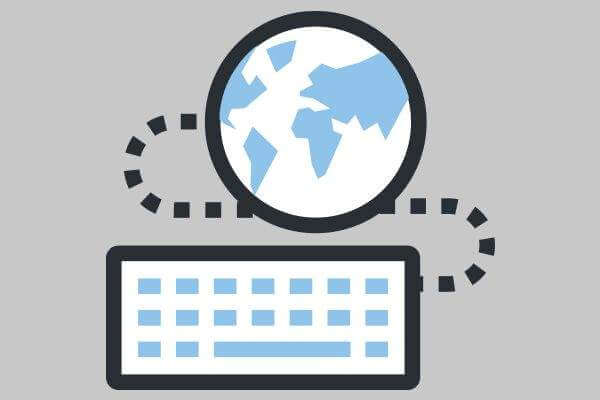
As the Filtrexx webinar series wraps up its fifth year, get ready to mark your calendar for the upcoming 2019 series. The monthly Filtrexx webinar series has been going strong since 2014, providing over 4,500 hours of free industry education.
Topics include the use of various compost-based BMPs for Sediment Control, Pollutant Removal, Low Impact Development and LEED/Green Building. Each webinar includes a Q&A session and attendees receive a certificate of attendance. These sessions are perfect for engineers, project managers, architects, environmental compliance managers, and inspectors looking to stay current in the fields of erosion control and stormwater management.
Webinars are presented by Dr. Britt Faucette, Ph.D., CPESC, LEED AP. Britt is an Ecosystem Scientist and the Director of Research, Technical, and Environmental Services at Filtrexx. He earned his Ph.D. from the Odom School of Ecology at the University of Georgia. He coordinates research, design, and training services for the stormwater and organic materials management industries and serves on technical committees and boards with ASTM, GRHC, CCREF, and IECA. In 2008 he was awarded the annual USCC Clean Water Award. Britt has authored numerous peer-reviewed and popular press publications and popular press articles, two books, federal and state specifications, and has been awarded nearly $500,000 in research grants. Britt frequently presents at industry conferences such as IECA, StormCon, and US Composting Council..
Register now for the 2019 webinar series:
Wednesday Jan 16, 11am EST – Sediment Control: Register Now
Wednesday Feb 13, 11am EST – Pollutant Removal: Register Now
Wednesday Mar 20, 11am EDT – Low Impact Development: Register Now
Wednesday Apr 17, 11am EDT – LEED & Green Building: Register Now
Wednesday May 15, 11am EDT – Sediment Control: Register Now
Wednesday Jun 19, 11am EDT – Pollutant Removal: Register Now
Looking to squeeze in some education this year? Join us in one of our final two webinars of 2018:
Wednesday Nov 28, 11am EST – Low Impact Development: Register Now
Wednesday Dec 19, 11am EST – LEED & Green Building: Register Now
As the Associate Marketing Manager for Filtrexx, Kristin specializes in print & digital marketing, graphic design, and website management. She also serves as the moderator for the monthly Filtrexx Webinar Series. Kristin attended the University of Toledo where she obtained a Bachelor of Arts in both communication and environmental studies. After completing multiple internships with Filtrexx, she officially joined the Filtrexx team in 2010. In her free time, she enjoys exploring local parks with her husband, spoiling their two golden retrievers, and cheering on the Cleveland Indians.
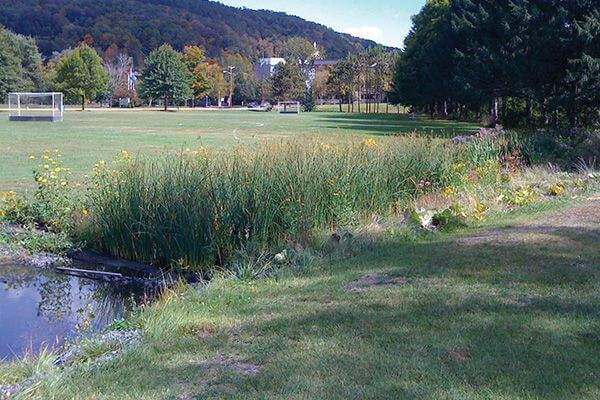
Problem: The St. Louis Missouri Metropolitan Sewer District owns and maintains 3,000 miles of stormwater sewers around the metropolitan area, and prior to 2012 had nearly 400 combined sewer overflows. Stormwater management and surface water quality in the city was poor and there were impending violations from the US Environmental Protection Agency (EPA) and the Missouri Coalition for the Environment. A consent decree was met and the Metropolitan Sewer District was obligated to spend nearly $7.5 billion on stormwater and surface water quality improvement projects. As part of this decree, they were chose to use compost-based bioretention systems for land disturbing activities that were one acre or larger.
Solution: St. Louis Compost brought in Filtrexx as a consultant to train the Metropolitan Sewer District on compost-based sustainable management practices (SMPs). The training included performance metrics and the supporting science behind these practices, how to understand and interpret lab reports, and developing compost-based bioretention specifications and engineering criteria requirements.
Success: This training lead to new standards in the St. Louis metro area. It ultimately lead to a large increase in interest in compost-based bioretention systems by the surrounding counties and municipal governments. This significantly increased the use of compost and allowed for St. Louis Compost to be the leading supplier for these applications in the metro area. The Metropolitan Sewer District moved forward in meeting critical consent decree obligations and goals with the EPA. Since 2012, nearly 2,700 bioretention systems have been installed in the region using an average of 750 cubic yards of compost per installation, totaling 2,025,000 cubic yards of compost. Additionally, the quality of the compost in the region increased as the Metropolitan Sewer District better understood specifics of compost quality while also greatly improving water quality across the metropolitan region.
Interested in working together on compost-based solutions for your city? Visit filtrexx.com for more information.
As the Marketing Manager for Filtrexx, Teele works heavily in the digital and social arenas of marketing, running the Filtrexx Twitter, Facebook and LinkedIn pages. She also serves as writer and editor of press releases, project profiles and most recently, the Filtrexx blog. Teele attended the University of Wisconsin-Whitewater where she obtained a Bachelor of Arts in public relations and a Master of Science in corporate communication. Teele has worked in marketing roles for various companies around the Twin Cities before landing at Filtrexx in July, 2017.
- ← Previous
- 1
- 2
- 3 (current)
- 4
- Next →
